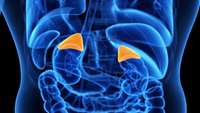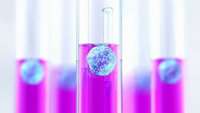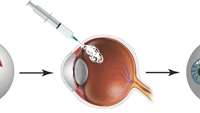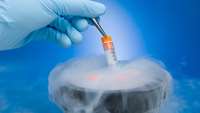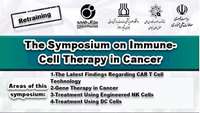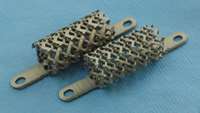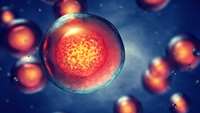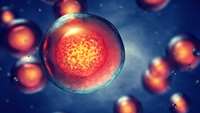The first step in generating an artificial adrenal gland
In a new study, published in Cell Reports, researchers from Queen Mary University of London used cells derived from urine to take the first step in generating an artificial adrenal gland, which could help develop future treatments for adrenal gland disorders.
Unveiling the Four-year Performance Book of the Council for Stem Cells Sciences and Technologies
According to the public relations and information center of the Vice-Presidency for science and technology affairs, the four-year performance book of the council for stem cells sciences and technologies was unveiled on the 130th executive meeting of the mentioned council.
Researchers grew a fully mature human egg in a lab
Researchers in the UK and the US have taken human eggs in their most early stage and developed them to maturity in a lab for the first time.
Combating eye injuries with a reversible superglue seal
When a soldier sustains a traumatic eye injury on the battlefield, any delay in treatment may lead to permanent vision loss. With medical facilities potentially far away and no existing tools to prevent deterioration, medics are in a high-stakes race against the clock.
Effect of Cryopreservation on Human Adipose Tissue and Isolated Stromal Vascular Fraction Cells: In Vitro and In Vivo Analyses
Adipose tissue is a source of adipose-derived stromal/stem cells for tissue engineering and reconstruction and a tissue source for fat grafts. Although liposuction is a simple procedure for the harvest of adipose tissue, the repetition of this surgical intervention can cause adverse effects to the patient and can be a limiting factor for immediate use.
The third congress of stem cells and regenerative medicine in urology and nephrology will be held
The symposium on immune-cell therapy in cancer will be held March 1st 2018 with the cooperation of the council for stem cells sciences and technologies.
How metal scaffolds enhance the bone healing process
The treatment of large bone defects in the upper or lower extremities (for instance, as the result of acute trauma, infection or bone cancer) remains a challenge in the field of trauma surgery. Bone defects of this kind do not heal on their own and, in particularly severe cases, will result in amputation of the affected limb.
Using software, researchers predict tumor markers that could be immune targets
University of North Carolina Lineberger Comprehensive Cancer Center scientists have developed a software program that can accurately predict which tumor-specific markers will show up on the surface of leukemia cells in patients who have received stem cell transplants. Researchers plan to use their findings to develop immune-based therapies that target these antigens in leukemia patients.
Cellular reprogramming: A new way to understand aging mechanisms
Increased life expectancy, due to the rise in life quality and the decline in mortality rates, is leading to a society in which the population aged 60 and over is growing more rapidly than the entire population.
Cellular reprogramming: A new way to understand aging mechanisms
Increased life expectancy, due to the rise in life quality and the decline in mortality rates, is leading to a society in which the population aged 60 and over is growing more rapidly than the entire population.


